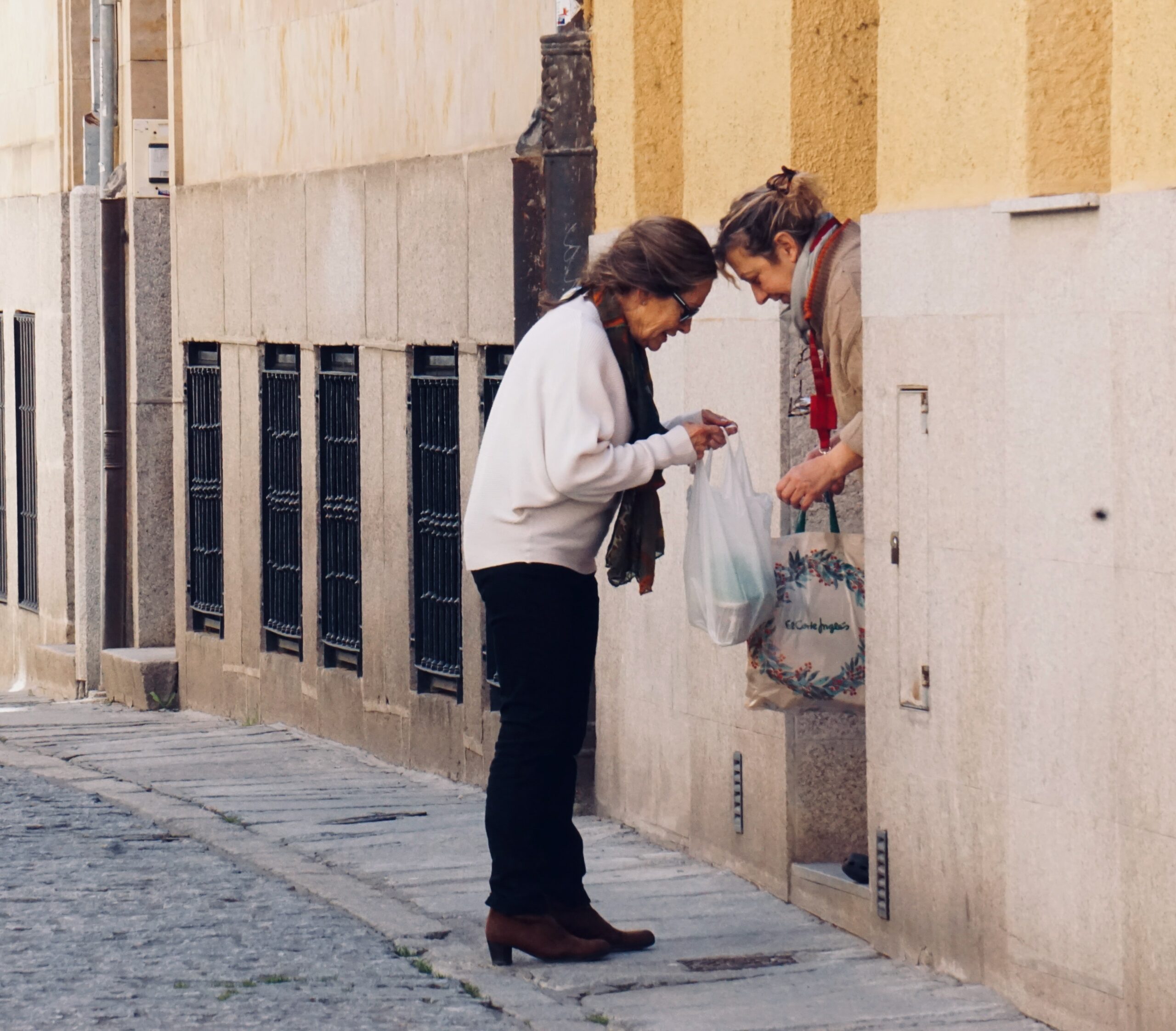Jesus set the example of place-sharing and invites us to participate with him.
 By Jillian Morrison, Associate Pastor, Glendora, CA
By Jillian Morrison, Associate Pastor, Glendora, CA
Who is my neighbor? This question was posed to Jesus more than two millennia ago and it is still asked today. Jesus answers the question with a story demonstrating that anyone can be our neighbor, emphasizing the importance of showing mercy to the hopeless and marginalized (Luke 10:25-37). While anyone in the world can be considered our neighbor, those who live geographically near us are also in that category, and those we have the most contact with, and the best opportunity to place share. This means that our neighbor is at home, our immediate neighborhood, at work, the one square mile around where the church meets, and beyond.

What does it mean to place-share with my neighbor? Theologian and Christian martyr Dietrich Bonhoeffer referred to Jesus’ mission and presence in the world as his ongoing “place-sharing” ministry. Our Lord stands and shares in the place of every person and acts fully on their behalf, with their best interests at heart. For Bonhoeffer, place-sharing is asymmetrical and unconditional, for it may end up being a one-way street: It does not wait or even expect the other person to reciprocate.[1]
This radical way of life reflects Jesus’ command to love even our enemies by doing good to them and expecting nothing in return (Luke 6:35). Professor Andrew Root describes place-sharing as taking shape when we “place ourself fully in the reality of the other, refusing to turn away even from its darkest horror. Just as Jesus incarnate, crucified and resurrected was fully our, so we too, as Jesus’ disciples, must ourselves become place-sharers, suffering with and for young people.”[2] This is ultimately what place-sharing with our neighbor is all about: Suffering with and for another, for the sake of the other.
Empathy and Compassion
Some of the most transformative moments of my life have been times when others shared in my suffering, and vice versa. They expressed empathy and compassion for me by simply being for me and with me in my pain, and I with them. Empathy is being with and feeling with another person. When we place share with another, we practice empathy and compassion.
The thought of sharing in the suffering of others may seem unnerving but suffering binds us together. Every human on the planet has suffered or will suffer at some point in their life. This is why we can practice compassion for ourselves and others, because of our shared experience of mutual brokenness. In addition to empathy, compassion extends mercy and acceptance to the other. May we learn to be compassionate to ourselves and our neighbor as God has been merciful and accepting of each of us exactly as we are.
Prayer and Perspective
Prayer may seem like a no-brainer, but we must be mindful not to underestimate the power of prayer and what God can do in and through surrendered hearts. The action of place-sharing is radical and difficult, so we cannot be selfless and place share with others in our own power.[3]
Pray for the power and victory of Christ to be your perspective, your confidence, and your strength. Pray for your neighbors and/or prayer walk regularly in your neighborhood if you are able. Ask God for the patience, empathy and compassion to genuinely (and generously) care for your neighbors, to see them as he sees them. Ask God to give you the courage to get out of your comfort zone and introduce yourself to others. Pray for the capacity to listen and the heart to understand as you get to know them. Remember that we love because God loved us first, and God loved your neighbors first, too.
Suggestions to begin place-sharing in your neighborhood
- Remember God is your first love: We can love and grow in love for our neighbors only when we place God first. Loving God and receiving his love daily is the fuel behind our ability to love our neighbor.
- Know yourself: Ask God for the courage and gentleness to uncover some of your own biases that may lead to judging your neighbor automatically without your awareness. Pray for healing and freedom from any prejudices and anxiety that would inhibit place-sharing with your neighbors.
- Start small: Try not to be too ambitious in the beginning – start with baby steps. Choose one neighbor next door or across the street to meet. Ask God for a few good questions to ask them. Pray about any and all natural interactions that may occur as you check the mailbox, water your plants, or go on a walk.
- Invite: Ask your neighbor to come over to an outdoor dinner next week, attend a Zoom game night, enjoy a walk or coffee outside together, see a movie at a community park, or attend an outdoor concert hosted by your city. During the holidays, ask your neighbor if they will be alone during the holidays and include them in your family gathering(s).
- Listen and learn: Practice the art of active listening by staying present as much as possible. Learn the names of your neighbors and what they’re passionate about. If they start to share their struggles with you, remember to breathe. Offer to pray over them in person. Ask God for wisdom to discern when a situation may be unsafe for you and/or your neighbor.
- Practice compassion: Consider who the outsiders and disenfranchised are in your community. Choose one of these groups and find out something about them. What do they need? What do they have to give? Where is God calling you to walk in his compassion?[4]
God bless you, church, as you participate in the mission of Christ in healing our world!
[1] Andrew Root, Revisiting Relational Youth Ministry: From a Strategy of Influence to a Theology of Incarnation (Downers Grove, IL: InterVarsity Press, 2007), 126.
[2] Ibid., 83.
[3] Ibid., 128-129.
[4] Adele Ahlberg Calhoun, Spiritual Disciplines Handbook: Practices That Transform Us (Downers Grove, IL: InterVarsity Press, 2005), 185.



Please note that comments are moderated. Your comment will not appear until it is reviewed.